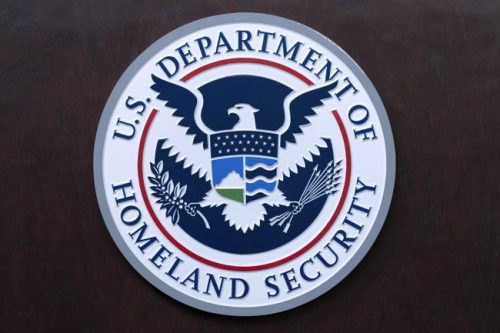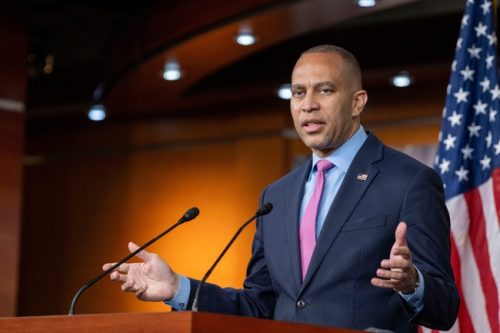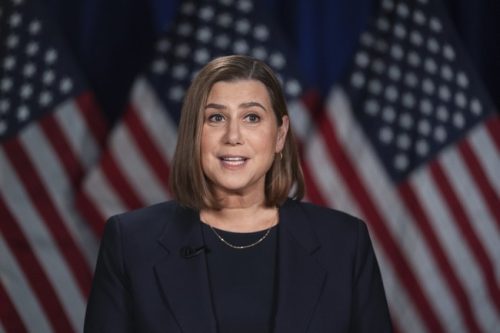The Senate moved to force the Justice Department to produce its Jeffrey Epstein records, the House passed the measure overwhelmingly, and President Trump backed the effort — but legal and investigative hurdles mean those files may not appear on a timeline anyone wants.
Congress pushed a bill through with heavy Republican support and near-unanimous House approval, so the public showdown over Jeffrey Epstein’s documents has reached a new phase. The political stakes are high because the records touch wealthy networks and powerful names, and that guarantees a messy public fight. Even with the bill headed to the president, release is not automatic or immediate.
Democrats turned Epstein into a political cudgel, and that strategy now risks backfiring because the files reportedly name people across the spectrum. Not every document is necessarily reliable, and a who’s-who of the elite shows up in Epstein’s orbit. For example, New York Jets owner Woody Johnson appears in the files and there is no allegation he is a pedophile.
President Trump recognized the political leverage and declared he would sign the bill, which helped lock down wide GOP backing in Congress. The House vote was 427-1, and the Senate passed the measure unanimously by consent, sending it to the White House. Still, the reality is that legal reviews and active probes could slow or limit what is made public.
The Senate on Tuesday unanimously passed a bill to compel the Justice Department to release all files related to convicted sex offender Jeffrey Epstein, sending it to President Trump’s desk.
Why it matters: Trump said Monday he would sign the bill, but the files still may not be released any time soon.
The Senate passed the bill by unanimous consent Monday evening, just hours after it cleared the House via a nearly unanimous vote — and before the bill had even technically been sent over.
In a stunning reversal, Trump this week supported the legislation after opposing the effort for months.
But his recent directive of DOJ to investigate Epstein’s ties to former President Bill Clinton, officials at JP Morgan Chase and others may cause the files to never see the light of day.
The big picture: Trump’s blessing of the Epstein bill helped secure widespread Republican support for the measure in Congress. Just one GOP lawmaker — Rep. Clay Higgins (R-La.) — opposed it.
Democrats argue Trump only decided to throw his support behind the measure to save face once it was clear the bill would pass — and that move made GOP opposition virtually untenable.
The Senate passed the legislation via unanimous consent, which requires the green light from all 100 senators.
The Justice Department was given direction to move on releasing accurate material, with Attorney General officials and outside advisers involved in decisions about what can be produced. DOJ has already signaled some records cannot be released because they contain explicit criminal material, including alleged child pornography. That means staffing and forensic reviews will shape what the public actually sees.
Names that make headlines will force intense political drama, and a few specific revelations have grabbed attention — like messages tied to Delegate Stacey Plaskett during a 2019 hearing involving former Trump lawyer Michael Cohen. When texts and timelines line up, they create sound bites that the media will run without the full legal context. Expect selective outrage and defensive posturing on both sides.
Republicans see this as accountability finally catching up, while Democrats are bracing for blowback and scrambling to control the narrative. The mainstream press will try to shield allies, but that protection only lasts until documents contradict the preferred story. Voters watching the circus will decide whether the press or the records carry the day.
Practical obstacles remain: ongoing probes, grand jury secrecy, victim privacy and criminal evidence protocols all limit immediate disclosure. Investigations into connections to high-profile figures and banks could prompt the DOJ to withhold material until parallel probes wrap up. The fight over transparency is therefore likely to be long, contentious and full of legal skirmishing.
Political consequences are inevitable. Supporters argue the legislation forces transparency that the public has long demanded, and opponents claim the move is performative or rushed. Either way, the push to pry open Epstein’s files has become another high-stakes test of how politics, law and media shape what Americans learn about the powerful.






